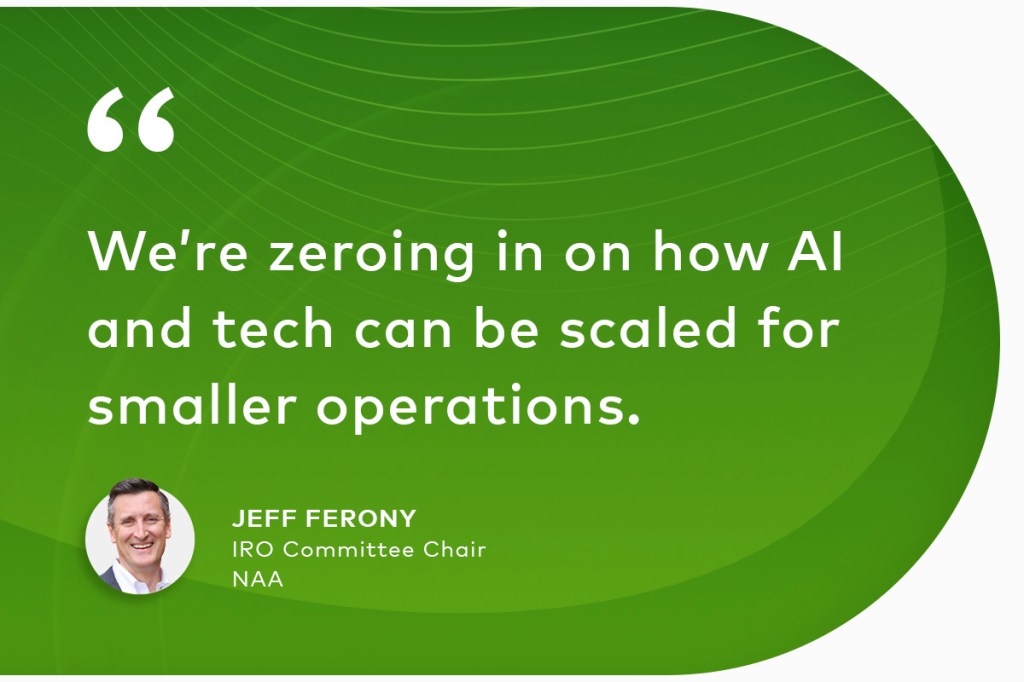
Trying to recruit top talent? It can be challenging for IROs and small property management businesses to compete against companies with a large human resources department. But with the right strategy in place, what seems like a weakness can actually be your greatest strength.
Let’s look at the ways you can position your business to compete with larger talent competitors.
1. Offer competitive pay
Despite the rising cost of living and concerns about inflation, the job market has been better than expected. U.S. employment remained at 3.8% as of September 2023. High employment is a positive economic signal, which could lead to even higher inflation rates in 2024. Coincidentally, PayScale projects pay to increase by 3.8% in 2024, noting that 78% of U.S. organizations say their 2024 salary budget is increasing.
Does your budget align with national growth expectations?
For independent rental owners, margins can be thin. You’re maintaining your properties while balancing employee compensation and benefits packages. Having said that, people may not take jobs that aren’t competitive in terms of compensation. By keeping pace with the industry and staying on top of national salary trends, you stand a better chance of recruiting top talent.
2. Be willing to look outside the property management industry
Finding someone with industry experience is always a plus. If all other qualifications were equal, relevant job history should obviously come into play. However, if you’re only looking at applicants who have worked in property management, you’re missing out on a huge pool of candidates. This is especially true for entry-level positions or office positions with transferrable skills.
For example, does a good accountant need to have a background in property management? With the built-in accounting tools found in the latest property management software, accounting and bookkeeping skills may be more relevant than experience in real estate.
Likewise, it would be great to hire a leasing agent with experience in a leasing office. At the same time, that might not be possible in your area. You might be hiring for an entry-level position, which means you might be finding someone with little to no prior work experience.
Interview as many high-potential candidates as you can to find a smart, fast learner.
3. Enhance your marketing presence
It’s not just residents and tenants who are looking at your public presence (e.g., website, social media, online reviews). Potential employees are checking you out too! They might use your marketing and customer feedback to evaluate your company culture, professionalism, relationships with tenants, etc. That means your marketing efforts should be made to impress anyone who could potentially find you online.
4. Promote your strengths to help attract & recruit top talent
It’s often easier for large companies to recruit top talent than it is for small companies. In part, this is thanks to financial advantages that smaller companies can’t always compete with. Large, established and highly profitable businesses often have more flexibility when it comes to paid time off, retirement savings, healthcare plans, etc.
But that doesn’t mean IROs and small property management businesses don’t have their advantages. You just have to know what they are and how to promote them!
For instance, with fewer corporate hoops to jump through, small offices can be nimbler when it comes to implementing new ideas or strategies. If you run a lean business with a minimal amount of red tape, you may be able to offer a great opportunity for someone who wants to showcase multiple talents, learn a variety of new skills and wear many hats on a daily basis. With any luck, you’ll find people to grow with you for years to come.
At the very least, you can position your business as a jumpstart to someone’s career.
5. Prepare for tough interview questions
At the height of the pandemic, many employers fell victim to “The Great Resignation,” during which workers were demanding more from their employers or finding a job elsewhere. Since then, the job market has mostly settled at near-full employment, but the interviewing process has changed dramatically.
In fact, you may have noticed interviewees are more vocal about their needs and expectations. According to Elizabeth Bronstad, senior recruiter at Yardi, Gen Z is speaking up and changing the game for hirers. “Gen Z candidates often approach the interview process with different expectations compared to other generations,” she said. “They’re not afraid to ask for what they want and may move on to another company if their expectations aren’t met.”
Elizabeth also highlights the importance of engaging potential hires where they’re at. “My team and I provide insights into our work culture and highlight positive aspects to help us engage candidates,” she said.
Be prepared to answer tough questions
Job seekers want to know a lot about who they’re going to work for. Pay matters a lot, but the broader picture matters too. In other words, the day-to-day routine and company culture can make or break a position for a potential new hire. Focus on your culture as much as (or more than) you focus on compensation.
We’ve compiled some challenging questions that IROs and small property management businesses should be prepared to answer. Consider how you might respond to the following:
- “I currently have a great job. Why should I consider this position instead?”
- “Can you talk about the worst day you had working here and how you got through it?”
- “How do you talk to people outside of work about your job?”
- “Can you provide evidence that diversity and inclusion matter in your hiring?”
- “How has your company adapted to the shift to remote and flexible work?”
- “How long has this position been open? Why do you think that is?”
- “Are high performers fast-tracked for promotions and salary increases?”
Be prepared to ask unique questions
Of course, you’re going to have questions of your own. Don’t just stick to generic questions such as “What are your strengths and weaknesses?” Remember, boring questions get boring answers. Ask unique questions such as “What has been your favorite work experience and why?” The interviewee should provide specific details that clue you in as to whether they’ll make a good fit.
Not sure where to start? Take feedback from your team to get a concrete sense of your strengths as a manager and recruiter. Their insights may help build confidence in your approach.
6. Give meaning to the work you do
Show your applicants that they’re contributing to something in society. Find ways to demonstrate the impact you have on your community. If a potential employee has narrowed down their choices to you and an entry-level position at a large corporation such as Apple or Google, what intangibles do you offer that other businesses can’t? It might be community involvement, a sense of place and being, etc. Some people feel like cogs in a machine at larger organizations, so show newcomers why that isn’t the case for IROs and small property management businesses like yours.
7. Leverage the latest tech to recruit top talent
Isn’t the goal to not only recruit top talent but to retain it? Giving your people the same tools they would have at a larger business will go a long way. Property management software will streamline your business operations like never before. That’s why it’s essential to use a platform that’s robust enough for your community and easy to learn for new employees. But having the wrong system is almost as bad as having no system at all and will make it harder to train and retain staff.
For a quick rundown of our best software options, check out this infographic comparing Yardi Breeze, Yardi Breeze Premier and Yardi Voyager.
8. Use artificial intelligence
AI tools such as Chat GPT can be used to write training programs, marketing campaigns, emails, etc. We’re not saying you and your new hires need to be experts in Chat GPT, but everyone in your office could benefit from knowing how to use these tools.
If you’re stretched thin, let Chat GPT make a guide to basic daily tasks. Likewise, let it help you write social media posts or emails, especially if this isn’t a skill of yours.
Consider this credo: AI won’t replace our jobs, but we may be replaced by someone who knows how to use AI.
9. Revisit your hiring process
It’s crucial to know who works for you. But there are fair chance policies now in place that intend to level the playing field and encourage employers to consider candidates that otherwise meet the job description before conducting credit or criminal background checks. For example, there are ban-the-box laws in the majority of U.S. states which determine when in the hiring process you can inquire about a candidate’s criminal history.
It is important to ensure a fair evaluation. This is likely how you operate when screening potential residents for credit and criminal history, so it makes sense to do so when recruiting talent.
10. Invest in success
Workspace matters to employees. Invest in attractive, well-maintained spaces and employee amenities to attract talent.
When margins are tight, network with suppliers and talk about your goals and budget constraints. Find someone who can put together a package that works for you. When a workspace looks like it was last decorated in 1975 and smells like basement mildew, it’s hard to recruit the best employees, much less keep them around.
11. Be good at what you’re good at & outsource the rest
IROs are rarely in a position to make every change they want at the same time. Prioritize ROI, key differentiators and income-generating and timesaving processes.
Also, start with what you’re good at. If that’s managing properties, do that and outsource the tasks you’re not as good at. Is your marketing significantly better than your competition’s? Is it a key differentiator for you? If so, keep doing it in-house. Hire and train employees for the work you already do well. For tasks you’re not so good at (yet), consider outsourcing.
Make sure you have a standard of what great work looks like, so you can train to that standard and maintain it. Doing so shows your intention to help grow new hires’ resumes. Help them excel at this job and grow their resume with you rather than lose them to the job hop.
12. Centralize your work
Use technology to let your staff specialize in what they’re good at. Property management software is going to be your best asset to help track work, maintain standards you set for your team and create efficiency by eliminating duplicate processes. Software lets you train people in a specialty rather than have everyone working on the same tasks.
13. Use professional resources
Property management associations such as NAA have great resources for independent rental owners. NAA can help you get involved with your peers, leverage all the resources available to you and guide you through the latest changes in technology, government policy and education.
Check out the NAA IRO membership brochure for more info.
Yardi Breeze also happens to be the exclusive 2023 IRO Committee sponsor. Feel free to watch the on-demand videos from our co-hosted virtual 2023 IRO Summit.



